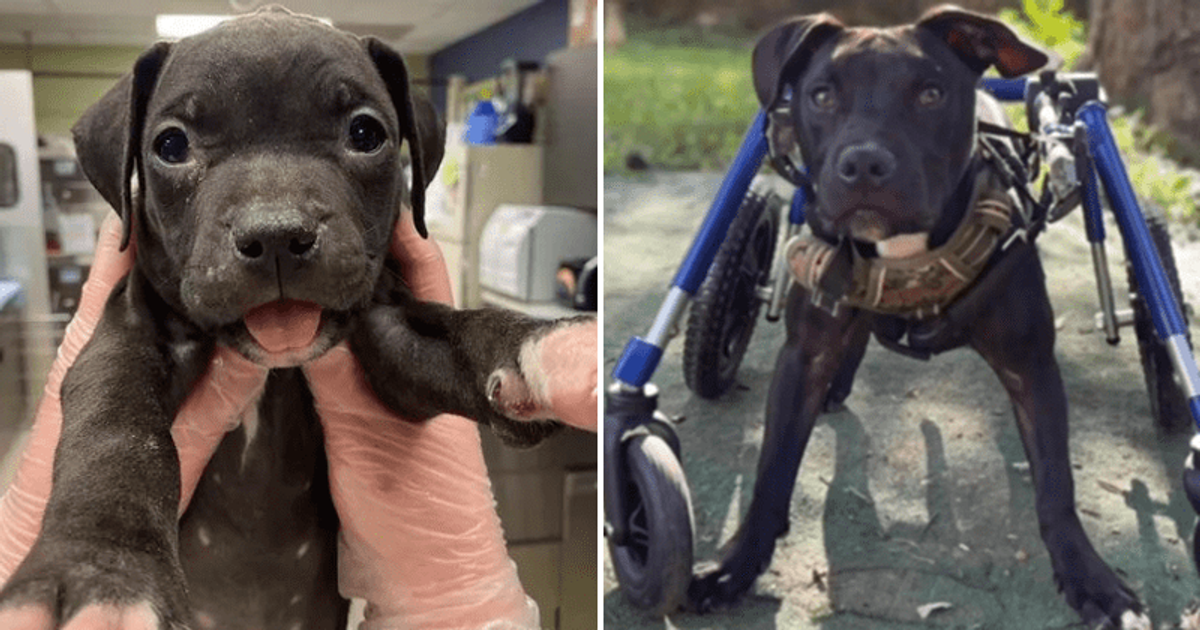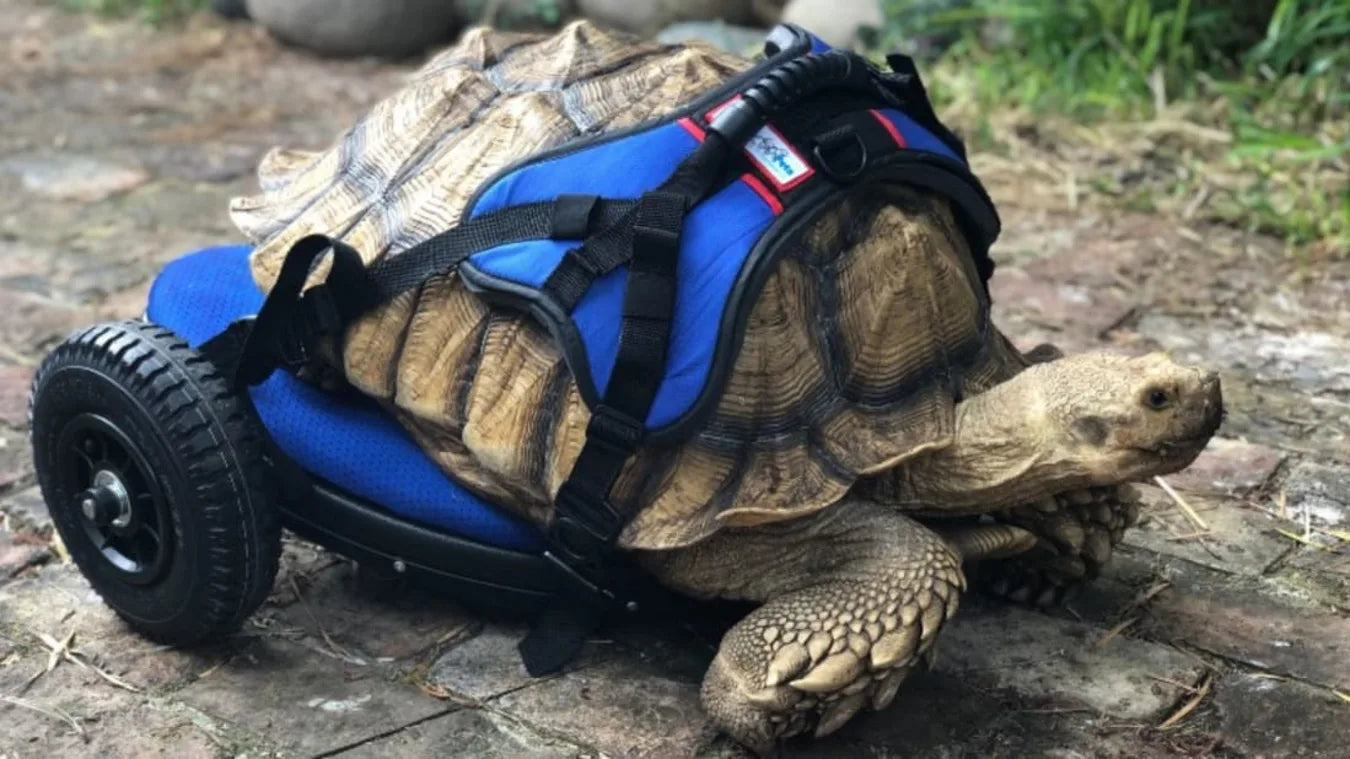Sit Down Dog Wheelchairs

4 Common Health Concerns For Pomeranians
If you have a Pomeranian, or are looking at getting a Pomeranian in the future, you need to know about the common health conditions that the breed often deals with. Having that knowledge, you can look out for it, and get your furry friend help when they need it. Here are the most common issues you should be looking for.
Pomeranian Mobility Issues

A Pomeranian can live to be 16 years old. Like any senior dog, an older Pomeranian can experience loss of leg strength as they age. Stiffness while moving or difficulty standing up off the ground may indicate that your dog is struggling with joint pain.
Senior Pomeranians may also can struggle with balance and shakiness. A mini dog wheelchair or support harness can help to support you tiny pup and help them to walk without losing their balance.
1. Tracheal Collapse
This is a condition that's common with all small dogs, so you'll want to watch out for it with your Pom. Their trachea, also known as the windpipe, is surrounded by a band of cartilage, which is what allows them to breathe. If they weaken over time, the pipe becomes narrower and it can become harder for your dog to breathe. You'll see they may be suffering this if they develop a harsh cough, or start gagging.
There are two main causes of tracheal collapse: The use of a too-tight collar, or a genetic disposition. You can't do anything if your Pomeranian is predisposed to the condition, but you can stop it from developing by ensuring their collar isn't too tight. You can also choose to use a harness, rather than a collar. Also, keep an eye on your dog's weight. When a Pom is overweight they're more at risk of this condition.
2. Patella Luxation
Patella luxation is also known as slipping kneecaps and is common in toy dog breeds including Pomeranians. Typically, most dogs will develop this due to genetics. When it happens, the patella, or kneecap, will become loose and move back and forth under the tendons.
If your dog is suffering from this, it may start to limp on that leg or attempt to stretch it out. Although the condition is genetic, there are some things you can do to prevent it from happening. Feed your Pom a healthy diet, as they'll need a good amount of calcium to strengthen their bones. Also, you'll want to have them checked over by a vet yearly, to make sure that they're not developing the issue.
If they do develop patella luxation, the only option is surgery to correct it. However, if you're having your Pomeranian checked regularly, you should be able to catch it before it gets too bad. Custom knee support can be worn to relieve knee pain and keep the kneecap in position. A custom brace is a good long-term solution, and can be worn post-operatively during recovery or when knee surgery may not be an option.
3. Coat Loss
There are a couple of different ways that Poms can suffer hair loss. Firstly, they may have hair loss due to Severe Hair Loss Syndrome, or SHLS. This is when their fur starts to thin out, especially around their back and bottom.
They can also suffer from Alopecia X. You may also see this referred to as Black Skin Disease. Typically, you see this in puppies who have excess coats with no guard hairs that don't shed. The guard hairs are left when the coat sheds, irritating the skin. They can also develop it later in life, where the coat comes in properly at first, but then starts to thin as time goes by.
The best way to prevent this is through proper grooming. You can look into how to groom your Pom yourself or take them to a professional groomer. They will know the ins and outs of grooming Pomeranians, so you can leave them in good hands.
4. Cushing's Disease
Cushing's Disease is seen in Poms that develop high levels of the cortisol hormone. Cortisol is a natural steroid produced by the adrenal glands. Cortisol helps dogs to regulate their weird, maintain healthy skin, and adapt to stress. An overproduction of cortisol can put a Pomeranian at risk for other health problems.
You'll want to look out for symptoms of the disease, including extreme thirst, excessive appetite, bloating stomach, lethargy, and more. Typically you'll see these symptoms in adult dogs, although puppies can contract it and only start suffering the effects once they reach adulthood.
This isn't a preventable disease, so you'll want to watch your Pomeranian closely for the symptoms. If you see any of them, book an appointment with your vet as soon as possible. Cushing's Disease can be treated through medication, and those dogs with an adrenal tumor may need to have it surgically removed.
These are some of the most common health issues that your Pomeranian can deal with over their lifetime. As their owner, you can prevent a lot of them with good care, such as grooming, exercise, and diet. Always take your Pom to the vet if you're ever unsure.
Pomeranian's Wheelchair Made a Difference
I would like to express my gratitude to Walkin’ Pets. I’m about two years delayed in getting this thank you sent to you. I’m the homeless vet in Wenatchee, Washington with the handicapped Pomeranian named Luke. I was the recipient who received the little wheelchair you donated for my little buddy. It was sent to me by a woman named Kristi who worked at the outreach ministries in Wenatchee. As soon as she put it together, she brought it to me and explained what you said were normal reactions for a dog the first time it was put into a chair.
We put the harness on Luke and hooked him into the Walkin’ Wheels dog wheelchair. He took off all excited as if the chair was a natural part of him. He moves around the house more freely when I take him out. I believe it aligns his spine and relieves the pressure on his nerves, so he feels better overall. I cannot express my gratitude enough to you folks for giving this dog wheelchair to me and Luke.
I am no longer homeless. I take Luke out and about, including to Leavenworth, Washington which is a town with many tourists. People comment and talk to me constantly about his Walkin’ Wheels dog wheelchair. I hope this gives some good publicity for your company. There are people from all over the world who come to the Bavarian village of Leavenworth. Kristi videotaped him his first time in his chair. I am going to try to get the video from her to send you. I do have a lot of still pictures of him without his chair, so you can see how he is without it. I love my little buddy and have had him since he was a small puppy. He was injured as a puppy when he was rolled under my neighbor’s car which permanently crippled him. Again, I can’t thank you enough for this wheelchair for Luke. God Bless you!
- J.D. Lowell










